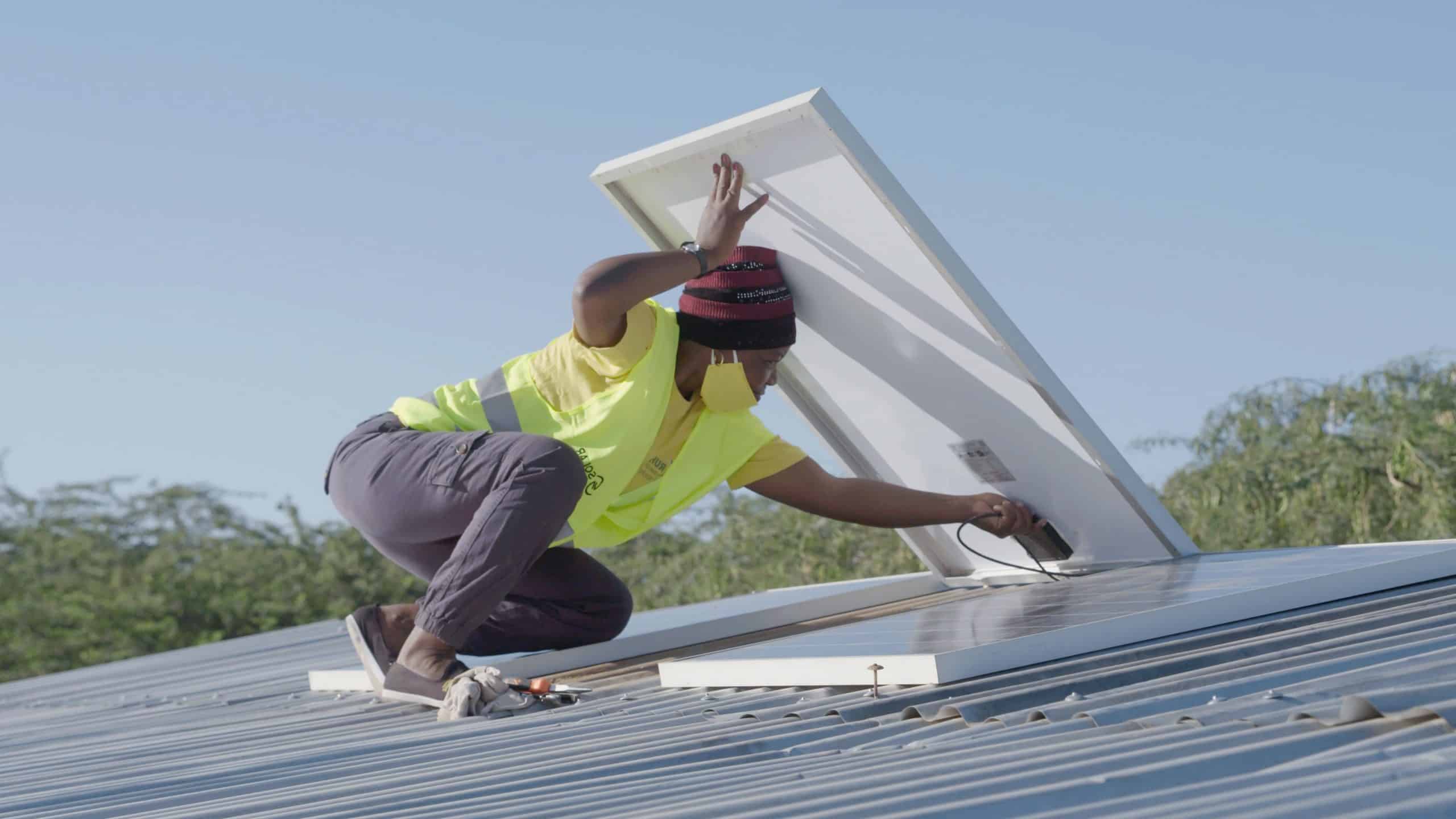Wednesda3 November marks finance day at COP26. Here’s our pick of stories and case studies to get you inspired and up to speed – and our tips for great events to join online.
Financing energy access: investment in work and skills is key
World leaders at COP26, need to put the planet on course for a fair transition. A key step is to deliver on a long-promised finance package of $100 billion a year, so developing countries can invest in climate action. Recent announcements suggest this is still years away. It is crucial funding increases quickly to make up this deficit and restore trust. Go deeper on climate finance with this briefing from the Energy and Climate Intelligence Unit.
Ashden believes that this funding must include a significant focus on supporting universal access to clean, affordable energy. In particular, finance should boost energy access jobs and skills. Failure to invest in this area will undermine climate and development investment elsewhere. Overlooking this area could stall progress towards climate justice. Read more in our new blog.
Stories of frontline finance innovation
While lower income countries wait for the support they need and deserve, ground-breaking financial innovation is already taking place by and within nations working towards universal energy access.
Grassroots pioneers include India’s Bharatiya Vikas Trust, a finalist in the 2021 Ashden Award for Energy Access Skills. The trust trains two groups key to widening energy access – grassroots entrepreneurs, and the financiers that can help them thrive. This includes rural bank staff and managers, who are given the knowledge and confidence to lend to renewable energy enterprises. This innovative approach closes a ‘finance gap’ limiting the spread of clean energy as a tool for making a living.
At the national level, the Beyond The Grid Fund for Zambia and Togo’s ambitious rural electrification programme both use subsidies and incentives as one tool to encourage the private sector to offer affordable, clean energy in remote rural areas. This comes alongside a package of other measures such as data monitoring and investment in the workforce needed to deliver energy access. Holistic approaches create environments where clean energy businesses can scale up operations nationwide. Zambia’s initiative alone has connected more than one million people with renewable energy.

Philanthropic finance is vital
One of the strength of these schemes is that they are designed to leave no community behind. Philanthropic investment can play a key role in financing the growth of climate solutions that specifically targets the most marginalised, as long as funders show the patience and the flexibility that allows innovators to work with these communities.
The rewards can include unlocking progress against a range of development priorities. One great example is action on sustainable cooling, where philanthropists can play a critical role in an emerging sector – read more in this blog from Ashden CEO Harriet Lamb.
Today’s events and tips
- Sustainable Energy for All’s SDG7 pavilion will feature events covering climate finance in Asia (8am and 10.45am), Africa (12.30pm) and Latin America and the Caribbean (3pm). Register to watch here.
- At 10.15am in the COP26 Blue Zone Mark Carney, UN Special Envoy and the Prime Minister’s Finance Advisor for COP26, will lead an event examining steps taken by the global financial sector. Follow the COP26 Twitter feed for updates from the official programme.
- Pensions can be powerful driver for climate action. At 12pm Make My Money Matter, Count Us In and WWF-UK will ask How Your Wallet Could Save The World.
- At 3.30pm, Women in Finance Climate Action Group will discuss practical steps to deliver finance for climate action and gender equality. Watch online.
- For in-depth coverage of the latest finance developments, visit Bloomberg Green – the site has lifted its paywall for the duration of COP26.

